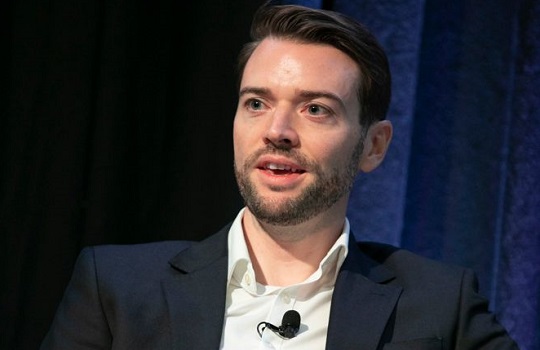
We are all working through a period of radical uncertainty. Being crystal clear on our organisational purpose has never been more important for us to continue to deliver for our customers and the community.
FST speaks with Alex Homer, Chief Customer & Brand Officer at TAL, exploring the life insurance giant’s unexpectedly swift response to the Covid crisis, its initial challenges and crucial learnings from a customer enquiry surge, and a digital program that puts humanity at its heart.
FST Media: FSIs are all at different stages of their digital transformation journeys, with many putting their ambitions on hold as they brace for more fallout from Covid-19.
Walk us through TAL’s agenda for 2020. How has the organisation absorbed the impact of the Covid shock?
Homer: The Covid-19 pandemic is one of the defining events of our lifetime, and at TAL we have worked hard in our response to ensure that we continue to support our customers, partners, and people during this challenging time. While the Covid-19 pandemic has meant we’ve needed to revisit some of our priorities and re-plan a number of more complex projects, the situation has also allowed us to discover new things about flexible working, new uses of our technology, and new ways of engaging with customers and partners that will improve the way we deliver our services in the future. We have also been quite surprised at how nimble and adaptable we can be as a large business.
We expect that the Covid-19 crisis will drive greater demand for digital services from financial services organisations and their customers as we emerge out of the crisis. We have been investing in our digital capabilities for some time and this remains an important focus for us to ensure that we continue to meet the evolving needs of those we serve. For example, from a financial adviser perspective, we see them evolving their ways of working through more remote working, as well as using digital capabilities within the advice process to support their business development activities. This is a trend we expect will continue, and we will support advisers during this transition through investment into our service and technology capabilities.
TAL insures people, not things. And with that comes the need for a human connection with our customers, particularly during their time of greatest need – making a claim. Our claims managers do an incredible job; we hear that feedback every day from our customers. So, a large part of our focus and digital development will be about further empowering them and our other customer-facing staff.
We are all working through a period of radical uncertainty. Being crystal clear on our organisational purpose has never been more important for us to continue to deliver for our customers and the community.
While we will invest further in our capabilities to adapt to the evolving landscape, we are also intensely focused on continuing to support our people and culture – a strong culture has certainly helped us tackle the past six months and will continue to be vital as we move forward.
FST Media: TAL recently expanded its wellbeing and support services to better assist customers affected by the pandemic – from added psychological support to career help services. As Covid continues to impact Australian lives and livelihoods, how will TAL ensure it can support customers through these unprecedented times?
Homer: We anticipate the health and social impacts of Covid-19 to be with us for some time, and we continue to identify new ways to support our customers and partners now and into the future. In addition to our tailored service offerings for customers whose wellbeing and employment have been impacted by Covid-19, we have developed additional support measures for our customers and partners.
We are also telephoning customers who have missed premium payments or whose policy is in danger of lapsing to ensure that they are aware of the financial hardship options available to them. This has meant that customers have been able to retain the valuable cover they need during this difficult time, which has included directly helping more than 2,000 of our Individual Life customers.
We have also adopted a pragmatic approach to both the frequency and the collection of required medical information to ensure customers on claim are not adversely impacted by an inability to attend appointments with doctors or specialists at this difficult time.
We are also proud to have supported the development of a key Covid-19 industry initiative by the Financial Services Council (FSC) with regards to cover for frontline healthcare workers. From our own data, we estimate insurers have already provided more than $2 billion of new cover to frontline workers under this initiative. We have also supported the FSC initiative on total permanent disability (TPD) cover for those whose employment has been impacted by Covid-19.
One thing for sure is that this crisis and its impacts are not over, and we know that we will need to do more.
There are many initiatives being worked on across our business, from supporting customer health to improving product design and further enhancing our support for disadvantaged and vulnerable customers.
FST Media: Financial services organisations have been forced to pivot their digital strategies to meet the challenges of the prevailing environment – from rapid work-from-home deployments to new customer engagement touchpoints and services. What does this pivot look like for TAL?
Homer: As the crisis hit, we were already a large part of the way through a new Modern Workplace program, which has very conveniently delivered a lot of the capability required for our people to work effectively from home. I therefore wouldn’t describe our journey as a pivot but more of an acceleration of some of the initiatives that we are already working on.
FST Media: FSIs have been hit with a barrage of customer enquiries since the pandemic first struck Australia. How is TAL managing and resolving the influx of customer contacts, particularly as health and wealth concerns continue to mount?
Homer: In the first few weeks of the Covid-19 pandemic, we had a surge of customer and adviser enquiries totalling 250,000 incoming phone calls. Our teams worked hard to deliver our critical services to customers during this period. During this time, we were not always able to meet our high standards for turnaround times on documents and wait times in our call centres, but after a period of adjustment, we’ve got on top of this.
We have some key initiatives in place to ensure that we can continue to provide the best possible support for our customers, including forming several Covid-19 workstreams and decision forums. We have, for example, a central technical claims team in place that monitors the pandemic and evaluates the current claims handling process to ensure we adapt to provide support for our customers in different situations. We have also established a ‘Covid-19 Forum’ to advise TAL on the emerging impact of the pandemic on the organisation. The Forum’s goals are to facilitate monitoring of the Covid-19 experience for customers and continually improve the customer experience. The Forum also considers trends in experience and assesses whether or when action triggers are likely to be hit and co-ordinate management responses. We were a collaborative organisation before Covid-19, but I would say that the situation has taken us to a whole new level which we will continue to foster.
FST Media: As a seasoned Chief Customer and Brand Officer, what to you defines a truly customer-centric insurer?
Homer: I don’t know about ‘seasoned’, but I’ve had a lot of different experiences in Australia, internationally and outside of the industry, which I think provides me with a unique perspective on what it means to deliver for customers.
It’s fair to say that the insurance industry, and perhaps more specifically the life insurance industry, has more work to do to deliver on today’s customer demands.
For me, customer-centricity at its core is about putting your customer needs first. But customer needs change over time and you need to adapt your business to that, and quite quickly these days. That’s why, for me, being customer-centric over the long term is about how you create the right environment, from your people and culture to your products, systems, and processes. Sat on top of this should be a robust customer advocacy framework which pulls in the right customer feedback, insights, and research and then develops this into clearly prioritised actionable improvements throughout the business. What I’ve learned is that it’s the collection of many small things that make the most difference to the way we support our customers.
FST Media: Due to the ongoing pandemic, corporate teams have been physically disconnected from their offices and colleagues – a situation expected to continue for some time. How can FSIs more effectively manage their remote workforces in this unique operating environment?
Homer: Covid-19 has transformed business operations and the way we work with our teams across the globe, and we expect many aspects of these ways of working will remain in place for the long-term.
At TAL, we’ve learnt that communication is key. We can’t communicate enough, and TAL leaders readily adopted new digital tools to keep their teams engaged, connected, and productive. We have introduced additional forums with senior leaders so that we are more regularly connected during these times when things are moving and changing quickly. This has also supported us in being able to cascade information quickly and consistently through our teams, as well as hearing real-time feedback about the experiences in different parts of our business.
Culture is very important at TAL, just as it should be for any business. Without a strong culture, I don’t think we could have adapted to this new environment as easily. As we continue to adapt to our new ways of working more permanently, which will likely mean less time in the office, it is going to be very important that we continue to foster our culture. I don’t think there is a simple answer for this, but I am quite certain that the way organisations approach this challenge will define their future success. TAL has set up a cross-functional program sponsored by the executive team to look at our future ways of working. Success will come from continued clarity and communication of our purpose, listening to our people, taking action, and being open to trying new things. ◼





